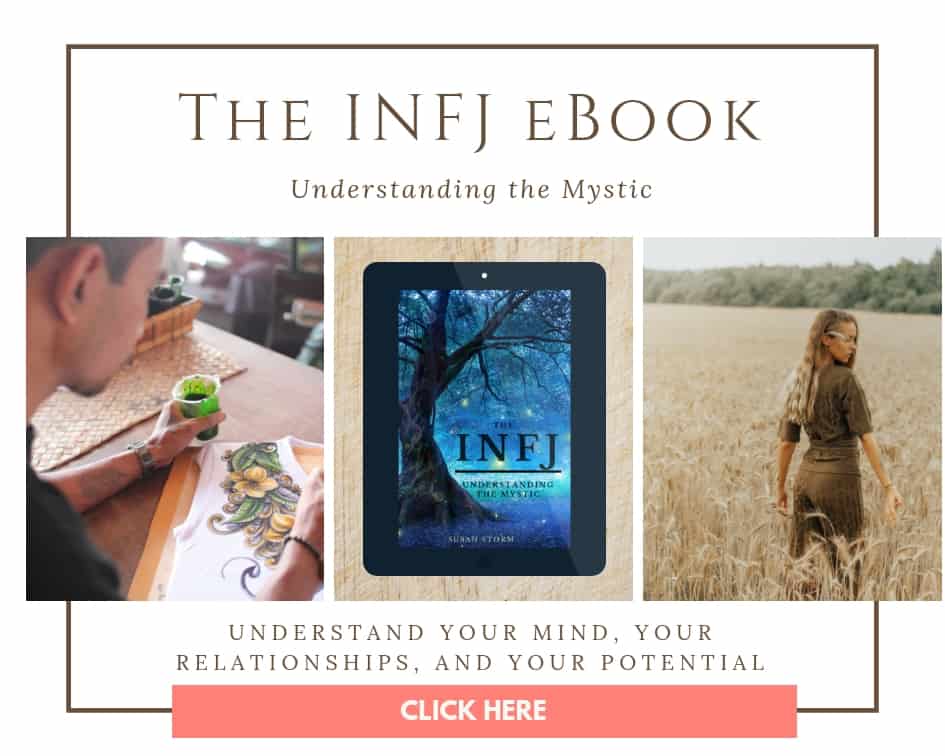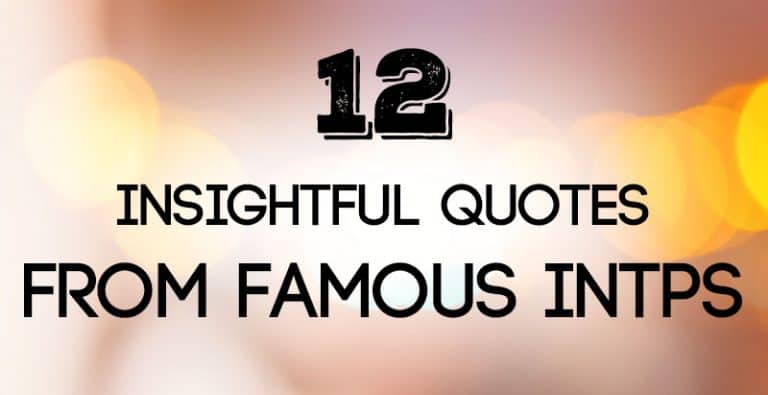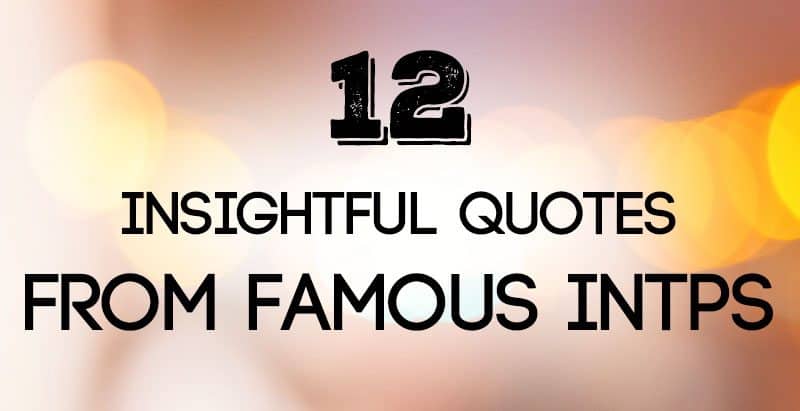The Secret Struggle of Every Myers-Briggs® Personality Type
Not sure what your personality type is? Take our new personality questionnaire here. Or you can take the official MBTI® here.
Table of contents
- The ENFP – Craving Lots of Interaction, but Struggling to Find Depth and Authenticity
- The ENTP – Physical Burnout
- The INFP – Feeling Like an Alien in a Superficial World
- The INTP – Craving Connection, but Hating Meaningless Conversation
- The ENTJ – Having Unattainable High Expectations for Themselves
- The ENFJ – Hating Conflict but Getting Wrapped Up In It
- The INFJ – Unrealized Ideals
- The INTJ – Ceaseless Perfectionism
- The ESTP – Craving Variety, but Missing Out on the Benefits of Long-Term Commitment
- The ESFP – Being Pressured to Always be the “Entertainer”
- The ISTP – Dealing with Bureaucracy
- The ISFP – Being Their Own Worst Critic
- The ESTJ – Being Misunderstood
- The ESFJ – Always Putting Their Needs on the Back-burner
- The ISTJ – Burnout
- The ISFJ – Being Taken for Granted
Estimated reading time: 10 minutes

The ENFP – Craving Lots of Interaction, but Struggling to Find Depth and Authenticity
ENFPs are typically gregarious and sociable, deriving inspiration from people, events, and experiences in the world around them. That said, the type of interaction they crave is far from superficial. These types want to explore thought-provoking questions, discuss the meaning of life, play devil’s advocate to commonly-held beliefs, and otherwise toss traditions and typical expectations aside to reveal deeper discussion possibilities. Unfortunately, finding people who want to have these kinds of conversations can be difficult. Many ENFPs find themselves searching through crowds of people getting caught up in small talk that holds little interest or inspiration for them. They are also frequently chided for their lack of respect for rules, tradition, or “acceptable” topics of conversation.
Read This Next: What ENFPs Do When They Get Really Stressed Out
The ENTP – Physical Burnout
ENTPs are individuals of creativity, imagination, and ambition. They mentally feel like they are always on overdrive, capturing connections, possibilities, and potential all around them. They are drawn to new pursuits and feel a compulsion to keep creating, thinking, and chasing after dreams. While this is a good thing, it can also have some unfortunate consequences. ENTPs can get so caught up in their ambitions, goals, and ideas that they struggle to sleep, forget to drink enough water, and lose sight of their physical well-being. Many ENTPs drive themselves to a state of physical burnout and stress because they are so completely consumed by their ideas. This results in exhaustion, IBS, frequent headaches, and dehydration.
The INFP – Feeling Like an Alien in a Superficial World
INFPs crave depth, meaning, and significance in everything they do. Wanderers and dreamers, they love exploring possibilities and envisioning a greater tomorrow for the people they love. At the same time, they find themselves overwhelmed by the corrupt and shallow-nature of the world around them. Searching for depth in a crowd of people can feel like an exercise in futility. They’d rather discuss things that have meaning than the latest episodes of the Bachelor. They want their lives to be composed of meaningful moments rather than shallow details. For the INFP, life is about something intangible yet purposeful – an improved world where people have compassion, integrity, and everyone is looking out for each other. The real world can be quite disappointing in contrast to the vision in their mind.
Read This Next: What Each of the 16 Personality Types Loves About INFPs
The INTP – Craving Connection, but Hating Meaningless Conversation
INTPs deeply desire camaraderie and connection with one or several individuals. They enjoy debating theories, swapping ideas, and developing trust and a sense of unity with others. At the same time they can feel bored with small talk or overwhelmed by navigating the emotional worlds of people they don’t know very well. It is only after a great deal of trust has been established that INTPs feel comfortable bringing up emotionally intense subjects. If they are pushed into it before they are ready their guard will come up. While they want deep connection with another person they often feel like the path to getting it is filled with roadblocks and awkward situations.
Read This Next: The Unhealthy INTP
The ENTJ – Having Unattainable High Expectations for Themselves
ENTJs are the ultimate list-making, goal-reaching perfectionists. These types see so many ways that things can be improved that it seems nearly impossible for them to be content with where they’re at. It never feels like they’ve accomplished enough, pushed themselves hard enough, or checked off enough of the boxes on their list of responsibilities. They ask a lot of others, but not nearly as much as they ask of themselves. When they get burned out and stressed from the pressure they put on themselves they feel overwhelmed by a sense of isolation, failure, and overwhelming emotions that they tend to hide rather than reveal. It’s important for them to check in with their body now and then to make sure that they’re getting enough rest and nutrition so they don’t become physically and emotionally depleted.
The ENFJ – Hating Conflict but Getting Wrapped Up In It
ENFJs deeply care about people and are willing to go to great lengths to help them out. Known for being peacemakers, these types have a knack for seeing where two opposing sides can find agreement. However, that means getting into the thick of a conflict and being willing to deal with often unreasonable, emotionally-charged individuals. While ENFJs tend to find themselves in these situations frequently, they are one of the types most likely to feel extreme stress here. ENFJs detest conflict, in fact many report feeling physically ill in the midst of conflict situations. Even so, they find themselves continuously compelled to speak up for people even if it would create conflict, or to step into conflict situations to create peace.
The INFJ – Unrealized Ideals
Driven by imagination and vivid perceptions of the future, INFJs have a strong desire to transform the world and improve it. They harbor images in their mind of an ideal they want to attain and they percolate on these images for long periods of time. They are singularly focused on getting somewhere, either for themselves or others. They crave an existence that is above getting and spending. When they can’t get other people on board with their vision, or they are so tied up with duties and obligations that their dream is relegated to the back-burner, they feel a great sense of loss.
Read This Next: 10 Signs of an Unhealthy INFJ

The INTJ – Ceaseless Perfectionism
Strategic and creative, INTJs feel an incessant need to achieve their ideal objective. When they have a goal in mind they’ve often envisioned it down to the finest detail. When reality fails to replicate that ideal they will work themselves to the bone trying to capture the image they had in their mind. These types feel failure deeply because they hold themselves to such high standards and have such a specific vision of how they want things to be.
Read This Next: 10 Things That Terrify INTJs
The ESTP – Craving Variety, but Missing Out on the Benefits of Long-Term Commitment
ESTPs crave a lot of action, excitement, and diversity in their lives. This tends to draw them to fields like entrepreneurship where they can take the reins and experiment with a number of different skills. However, many ESTPs end up jumping from job to job, quickly getting bored once they’ve mastered something well. Sometimes their search for variety doesn’t show up in careers, but in relationships or hobbies. They tend to shy away from commitments until they’ve explored all their options – but this constant exploration might drive them to feeling unsatisfied or lacking stability.
The ESFP – Being Pressured to Always be the “Entertainer”
While ESFPs are known as optimists and opportunists, this doesn’t mean that they never struggle with depression, fear, sadness, or despair. On bad days, however, they are often met with dismayed or surprised looks rather than understanding. Because they frequently show an upbeat, enthusiastic face to the world they are often expected to be the “Life of the party” on a constant basis. One ESFP I spoke with said, “People don’t know what to do with me when I’m down or need time to myself. It just doesn’t compute for them. Where’s the person who will lift me up when I’m down? At moments like this, my role seems like more of a chore than anything else.”
The ISTP – Dealing with Bureaucracy
When ISTPs see something that needs to be done, their instinct is to just do it. Wasting time arguing about rules or cutting through red tape infuriates them. They have a disdain for management practice and following protocol. Rebellious and laser-focused on the problem at hand, these individuals work with skill, exactness, and speed. They cut-to-the-chase in speech and in work, skipping over pleasantries and rituals to get right to solving the problem at hand. If extraneous procedures get in the way of their solution it provokes them to anger and restlessness.
Read This Next: An In-Depth Look at the ISTP Personality Type
The ISFP – Being Their Own Worst Critic
ISFPs may seem easy-going at first glance, but these types actually hold themselves to very specific standards. They are drawn towards creativity and a life of meaning, but they often struggle to understand the steps needed to accomplish their goals. When their ideals fail to become a reality, or when they are highly stressed, ISFPs tend to become uncharacteristically angry and sarcastic towards people. Unfortunately, this only causes more despair and they tend to turn inwards and blame themselves more harshly than they’ve blamed anyone else. It’s often through alone time and rest that they can find equilibrium.
The ESTJ – Being Misunderstood
ESTJs are straight-shooters who like to focus on facts and solutions. When someone comes to them with a problem they try to help by collecting the facts and giving advice that works. Sympathy and feel-good platitudes don’t come easily to them. Their directness tends to land them in hot water with people who simply want encouragement or validation. They might be accused of lacking empathy or being “cold” when they are anything but. They just empathize by giving workable solutions and plans. After all, that’s what they would want if they were coming to someone with a problem.
The ESFJ – Always Putting Their Needs on the Back-burner
ESFJs care deeply about people, and they like to show it through practical support and acts of service. They will almost always put the needs of their loved ones ahead of their own needs, which can result in physical exhaustion, workaholism, or a feeling of being taken for granted. They also worry about their loved ones a great deal and will spend an inordinate of time making sure everyone is safe, cared for, and emotionally in a good place. Over time all these worries and cares can be too much for the ESFJ and they reach a “grip” phase of stress. This results in tiredness, self-criticism, and a need to be isolated. It’s important for ESFJs to include themselves in the list of people they take care of.
The ISTJ – Burnout
Responsible, driven, and hard-working, ISTJs are often trusted for their attention to detail and capacity for productivity. That said, these types are infamous for driving themselves to the brink. Their desire for control, order, and efficiency can give them the feeling that “If I want this done right, I better do it myself.” Long, lonely nights are spent up trying to wrap up the details of a complex project, and because they rarely complain, many people fail to see the exertion they are experiencing.
Read This Next: 10 Things That Excite the ISTJ Personality Type
The ISFJ – Being Taken for Granted
Protective, loyal, and compassionate, ISFJs will go to extreme lengths to care for their loved ones. They can become so wrapped up in serving others that they are taken advantage of. Ever-nurturing, dutiful, and attentive, these types are revered for the warmth and practical support they give. However, sometimes this is in detriment to their own needs. This can eventually lead to exhaustion and a feeling of not being “seen” but merely used.
Read This Next: The Unique Intelligence of the ISFJ, ISTJ, ESFJ and ESTJ Personality Types
What Are Your Thoughts?
Did you enjoy this article? Do you have any experiences or insights to share? Let us know in the comments!
Find out more about your personality type in our eBooks, Discovering You: Unlocking the Power of Personality Type, The INFJ – Understanding the Mystic, and The INFP – Understanding the Dreamer. You can also connect with me via Facebook, Instagram, or Twitter!














Amazingly accurate! I can see each of my 4 family members in this, and it’s so true about each of us. Thank you for the insight!
Hmm, I relate to exactly 10 of those.
I also have an aversion to the red tape… But it is also INTJ …
Truly Amazing.
But some of these aren’t secret. Lol, ha! …I mean c’mon, entj, infj, intj, estp, isfj.
ENFJ is accurate. I can’t help getting dragged into so much drama and it’s exhausting to deal with. But I can’t stand unjust behaviour. Especially if it involves someone who can’t stand up for themselves. I have to get involved, even when I know I will be drained afterwards. It is very difficult.
My sister is an ESTJ and they are so misunderstood. They are the spocks of the world- organised, logical, driven, problem-solvers, almost like machines at times, but seemingly unemotional on the surface. But they want to fix everything for you to make you happy again and if you hug one they turn into massive teddy bears! It’s like their cryptonite! Mwahahahaa!
Searching for depth in a crowd of people who are focused on gossip, prestige, fashion, or debating the latest episode of The Bachelor can feel like an exercise in futility.
As if that weren’t enough, there’s the fact that the crowd members will think you hold something against them. They naturally do so, since they can’t guess other reasons for you not joining in the futility. In other words they are sure that, if you didn’t have a dislike of them, you’d be joining their chatter and activities.